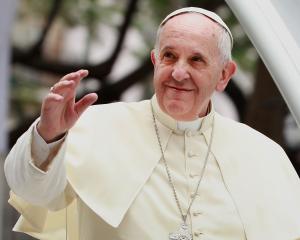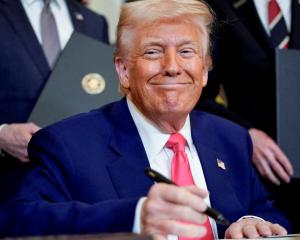It looks a done deal. At least part of the America's Cup qualifying series will be raced in Auckland and the Government will support Team New Zealand with taxpayers' money.
Reports from Australia say Sydney (Australia does not have an entrant) has missed out to Auckland, although the official announcement is still some days off.
For the last challenge, Team New Zealand controversially received $36 million from the Government.
It put its hand out for the same again and this Government, tuned to the winds of public opinion, was reluctant.
Once the finals were confirmed for Bermuda - which incidentally paid $15 million for the rights - it was hard to see sufficient benefits for New Zealand Inc.
Funding for Team New Zealand had sailed into stormy waters and the chances of state funding were disappearing.
That was an appropriate attitude. Team New Zealand had done itself no favours with its secrecy and the apparent high salaries to those running the show, notably supremo Grant Dalton. (Meanwhile, there was speculation yesterday that skipper Dean Barker will be dumped as helmsman for the next campaign.)
The attention of New Zealanders might have zoomed in on the finals - who can forget the races last time and the comeback from a seemingly insurmountable deficit by Oracle - but for most of the world the best the cup might manage is a snippet on the sports news.
While in certain circles New Zealand involvement and relative success did say something about this tiny country's ability to compete and innovate, most of the world would have been unaware.
Now, however, the game has changed. Auckland seems likely to see five challengers plus defender Oracle here for several months from about October or November next year until about February 2017.
Now, the Government and Economic Development Minister Steven Joyce and Prime Minister John Key have a story to tell.
Now, they can trumpet the economic benefits to Auckland, New Zealand and the marine industry, and of a fair degree of international publicity.
Crucially, they can now argue the money ''invested'' in Team New Zealand, expected to be considerably less than the $36 million, will be more than made up for in extra PAYE taxes and GST through Team New Zealand, the challengers, the defenders and all the direct spin-offs.
Likewise, any taxpayer cash given to support the running of the regatta can be justified as being for a so-called ''major event''.
Auckland, or more particularly the host, the Royal New Zealand Yacht Squadron (which Team New Zealand represents), it seems will have to find the money to help with organisation costs, even if it does not have to cough up money for the right to hold the races.
It is still easy to make claims about ''crony capitalism'', ''corporate welfare'', ''rich mates'' and other sound-bite epithets. There are, indeed, far worthier causes, like poverty alleviation, than supporting a ''rich man's sport''.
Nevertheless, once the Government could make a cogent financial argument, it could move. It can point, as well, to the British Government giving $15 million to Ben Ainslie's Cup syndicate.
The Government can also bet on New Zealanders, while highly sceptical at the moment, being won over by the glitz and glamour of the 62-foot catamarans foiling around Auckland Harbour.
They will be smaller than the 72-foot monsters off San Francisco, but with ever-advancing technology and techniques could well be faster.
One of the reasons Team New Zealand has lost public backing, at least for now, is because it seems a closed shop designed to benefit an inner circle.
The time is overdue, given the taxpayer backing, for Team New Zealand to be much more transparent about costs and the top salaries. This occurs in public companies, and such openness would dampen one legitimate cause for complaint.
Those on the left will continue to howl with outrage at America's Cup funding.
Those on the true right will also be appalled at the Government taking a role in what they believe should be a private domain. But Prime Minister John Key and Economic Development Minister Mr Joyce will, once again, have ignored ideology in their decision-making, tested the wind and decided to set sail.












